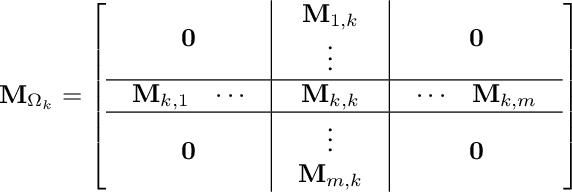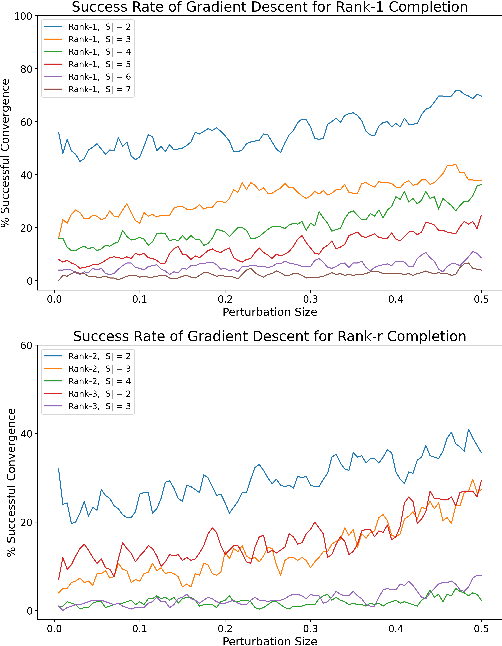Factorization Approach for Low-complexity Matrix Completion Problems: Exponential Number of Spurious Solutions and Failure of Gradient Methods
Paper and Code
Oct 19, 2021

It is well-known that the Burer-Monteiro (B-M) factorization approach can efficiently solve low-rank matrix optimization problems under the RIP condition. It is natural to ask whether B-M factorization-based methods can succeed on any low-rank matrix optimization problems with a low information-theoretic complexity, i.e., polynomial-time solvable problems that have a unique solution. In this work, we provide a negative answer to the above question. We investigate the landscape of B-M factorized polynomial-time solvable matrix completion (MC) problems, which are the most popular subclass of low-rank matrix optimization problems without the RIP condition. We construct an instance of polynomial-time solvable MC problems with exponentially many spurious local minima, which leads to the failure of most gradient-based methods. Based on those results, we define a new complexity metric that potentially measures the solvability of low-rank matrix optimization problems based on the B-M factorization approach. In addition, we show that more measurements of the ground truth matrix can deteriorate the landscape, which further reveals the unfavorable behavior of the B-M factorization on general low-rank matrix optimization problems.
 Add to Chrome
Add to Chrome Add to Firefox
Add to Firefox Add to Edge
Add to Edge